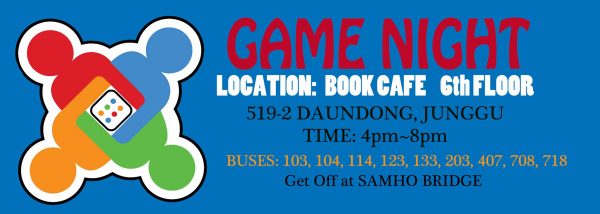Giving Birth in Ulsan
By Adele Vitale
Having a baby can be wonderful, scary, exciting, frustrating, thrilling, exhausting, exhilarating, and intense, all at the same time. Whether a pregnancy was planned or not, expectant parents may find themselves confused, worried and generally overwhelmed, especially if they live in a foreign country, the language of which they do not necessarily speak.
Additionally, any expat living in Korea in places other than Seoul knows all too well how great the divide is between the capital and the rest of the country when it comes to availability of products and services catering to the expat community. Not surprisingly, the same applies when it comes to perinatal services. Expectant parents living in and around Seoul have access to birthing centers with plenty of options for natural childbirth, homebirthing midwives, doulas, good prenatal care, and childbirth education classes in English. In cities like Ulsan, however, choices become much more limited.
The hospitals most foreigners choose for giving birth here are Boram Women’s Hospital, located in Samsan-dong, and Ulsan University Hospital in Dong-gu. Frau Medi in Samsan-dong, Rosemedi in Dong-gu, and Miz Hospital in Mugeodong have also seen a number of foreign moms, and have doctors and nursing staff who speak English to various degrees. Boram also has two interpreters/translators who assist foreign parents at doctor appointments and even during labour and birth.
All of these hospitals offer private labour, delivery & recovery rooms, called “Family Rooms”. This means that women will be able to labour and birth in the same room, accompanied by one or even two family members. Bathrooms, birth balls, and CD players may be available; a large TV usually is. A short while after giving birth, the new family is moved to the recovery rooms, where they will remain for the rest of their stay in the hospital (usually 48-72 hours for a vaginal delivery and 5 to 7 days for a Cesarean section). Some hospitals allow rooming in with the baby, while others do not and have all babies stay in the nursery. Moms are then called to breastfeed through the internal telephones in the room; most hospitals will have a certified lactation consultant on staff to assist with latching and positioning. All options are worth checking with doctors during prenatal appointments, and most hospitals will offer a tour of their facilities.
Prenatal appointments in Korea may differ from the way they are carried out back home. At every appointment the doctor performs an ultrasound, first to confirm the pregnancy (as early as 5 weeks), then to check on the baby’s development. 3D ultrasounds have become standard practice, with surprisingly detailed images. Appointments are usually very brief and cost an average of 45,000 won (plus the cost of tests) with National Health Insurance, or about twice as much without. At Boram hospital, the most popular choice for foreign parents wishing for a natural birth, a normal drug-free birth without insurance costs around 4500 USD (including two nights and three days in a single room), while a Cesarean birth costs around 6500 USD (including six nights and seven days in a single room). Ulsan University Hospital is more suitable for high-risk pregnancies and emergency deliveries, as their facilities include both an intensive care unit (ICU) and a neonatal intensive-care unit (NICU).
Once the pregnancy is confirmed (usually when a heartbeat is detected, around 6 to 8 weeks), moms covered by NHI through their employer or husband can apply for the GoEun Mom Card, covering 500,000 won worth of prenatal visits and/or birth services. In order to apply, they will need to bring the doctor’s statement and their ARC to a Kookmin or Shinhan bank. The Expat Parents Korea Facebook group contains plenty of information on government support and insurance issues for foreigners.
Most doctors experienced in dealing with foreign clients will be familiar with birth plans and willing to discuss the various options. Most hospitals will have certain aspects they are not willing to compromise on; for example, partners are practically never allowed in the OR in case of C-section, even when planned, and moms are required to lie down on their backs to give birth (although they can usually labour in other positions). Episiotomies are routinely performed, although parents can opt out. VBACs are also still a rarity here and repeat C-sections are usually performed. Last but not least, after birth, mom and baby are routinely separated for thirty minutes at least, so that tests can be performed. During this time, certain medications (including the Hepatitis B vaccination and Vitamin K injection) will be routinely administered, so parents choosing to opt out should state so in their birth plan.
Parents looking for an entirely natural birthing experience with a midwife and/or a water birth can either travel to Seoul and the surrounding area, where birthing centers offering such services are available, or hire a midwife (and possibly rent a pool) for a homebirth. Only two midwives currently travel for home births: Rosa Kim and Danica Bang. Their services cost around 4 million KRW and are covered by some international insurance companies. The doctors at Mediflower Birthing Center in Seoul are also willing to travel for homebirths, and their fees average 7 million won (also covered by international insurance).
As concerns labour support, a company was recently launched offering doula services. It is calledParentLink Korea and it is the local branch of an international franchise with locations in the US, Singapore, Seoul, and our very own Ulsan. Certified birth doula and childbirth educator Adele Vitaleoffers support to expectant parents before, during, and after labour, as well as childbirth preparation classes in English, including the Hypnobirthing® course. The classes are specifically catered to foreign parents having a baby in Korea and are therefore instrumental in preparing both moms and their partners to the reality of giving birth in a Korean hospital.
In the immediate postpartum period, traditional “helpers” (도우미, doh-woo-mee) are available for part- or full-time work. These are usually Korean women in their fifties or even sixties, trained in assisting moms during their recovery, doing housework, and taking care of the baby. They rarely, if ever, speak English, so cultural differences may make the experience not always enjoyable for foreign moms; however, this is an option worth considering when the new mom cannot be assisted by her own family or friends.
All in all, having a baby in Ulsan is probably not harder than anywhere else and good doctors are available, but parents hoping for a natural delivery would be well advised to attend childbirth preparation classes to make sure they are prepared, and therefore able, to make informed choices. Also, research has shown that having a doula reduces the risk for all interventions, including C-sections, shortens the length of labour, and overall improves the birth experience for both parents, so this is definitely an option worth checking out, especially when having a baby in a foreign country.


